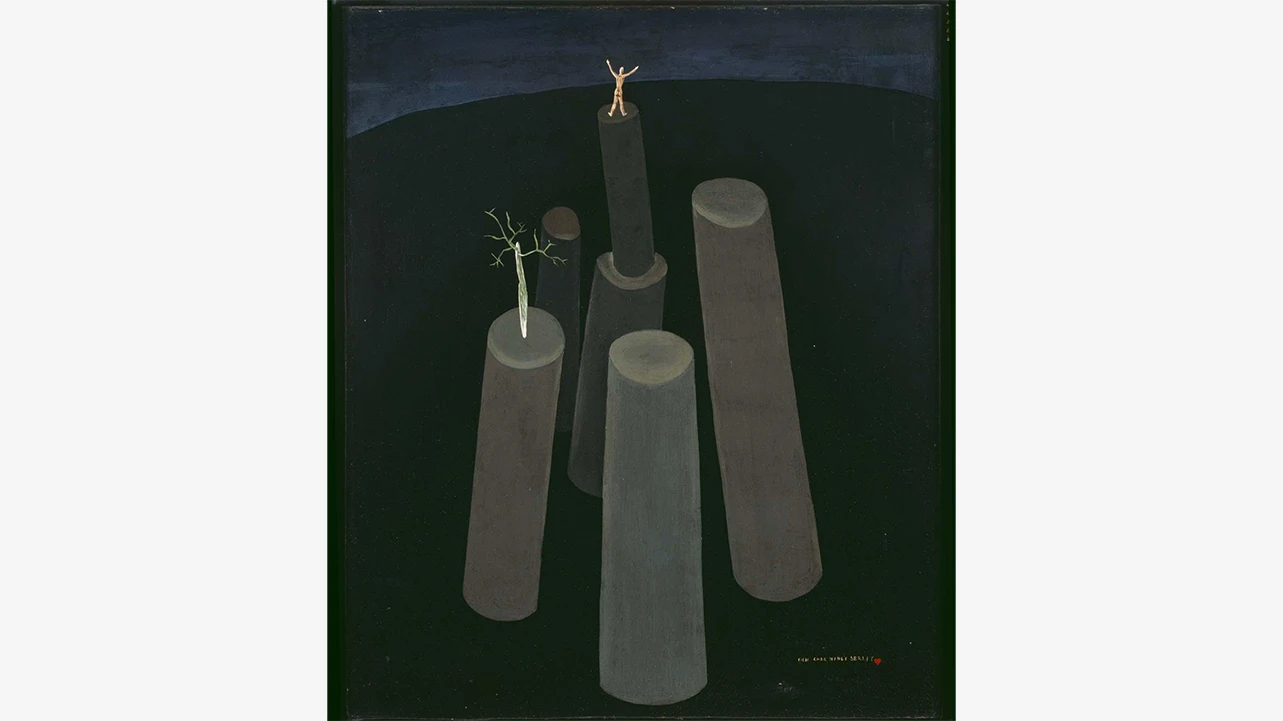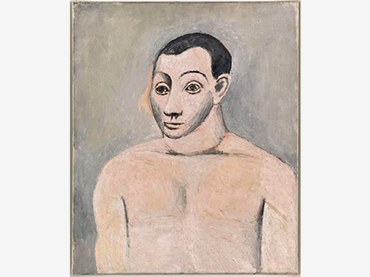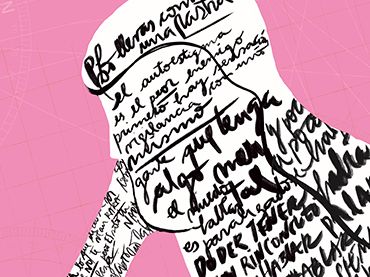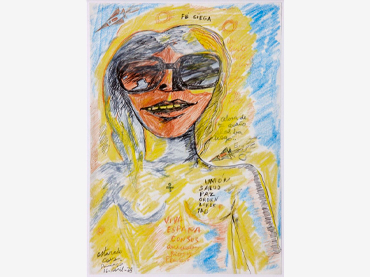TIZ 7. Healing Institutions

Held on 01 Dec 2022
All institutions declare the benevolence of their origins: to satisfy a need, to fulfil a just aspiration. Thus, every institution oscillates between need and utopia, forming a complex network of practices and mediums, possibilities and interests, where errors, deviations and perversions are also manifested. Paradoxically, only in this anomalous space can the institution be truly inhabited. Only from inside this mesh can it name a beyond and permeate its limits in the drift towards an extraneous space, towards an exteriority where the institution, which is realised as it dissolves, is no longer able to truly fulfil the destiny to which it supposedly aspires. It is from these premises that ideas reverberate to foster the institutional health set in motion by exiled psychiatrist Francesc Tosquelles. Since December 2022, via the programme Perturbable School II, seminars on political violence and institutions, the work of Margarita Azurdia, and other situated voices, this Temporary Intensity Zone raises questions around the illness and healing of the institutions that shape us and the bodies with which we traverse and make them.
-
Thursday, 1, and Friday, 2 December 2022 Nouvel Building, Auditorium 200 and online platform
Picasso from Cultural Studies. The Dream and Lie of Spain (1898–1922)
International Congress
TicketsThis international congress is the first activity to be held inside the framework of the Commemoration of the 50th Anniversary of Pablo Picasso’s Death in 2023. Its title alludes to Picasso’s renowned prints under the title Sueño y mentira de Franco (The Dream and Lie of Franco, 1937), and investigates, from the field of Cultural Studies, Picasso’s relationship with the challenges, crises and transformations that shook Spain in the period stretching from the 1898 Disaster to the end of the Rif War in the 1920s. Bohemia, anarchism, nationalism-colonialism and repressive institutional policies in relation to women are the ideas that run along the four elements articulating the congress and look to shed more light on this period.

-
Tuesday, 13 December 2022 Nouvel Building, Protocol Room and online platform
Situated Voices 26
Post-pandemic Mental Health. How Can We Care for Ourselves Amid Precarity?
TicketsThere has been a sharp rise in depression and anxiety since the start of the COVID-19 pandemic, exacerbated by a situation of structural inequality and precarity which chiefly affects women and young people. Inside a national framework with a lack of public health services, the aim, from activism in general and the determination of feminisms in particular, is to spotlight these key life questions. This encounter, conducted by Sara Buraya, coordinator of Museo en Red in the Museo, and activist Rafaela Pimentel, brings together activist women over mental health as they reflect on these issues from their own experiences.

-
Friday, 3, and Saturday, 4 February 2023
The Militarisation of Political Communication and the Alternatives Today: Beyond Culture Wars
International Congress and Workshop
This programme makes headway through conversations and a laboratory-carnival, prompting a close-up view of the limitations of concepts such as “heal”, “illness” and “mental health” — from psychoanalytical knowledge and other cosmovisions which do not understand the world from the opposition of nature and culture — while proposing the creation of clinical-political-artistic interventions which extrapolate habitual spaces of treatment. The aim is to break from the conservative nature of institutions, which are often limited to continuing the role for which they have been intended, with the idea of opening them out and making them more permeable to subjectivities which become central through difference.

-
Thursday, 16 February 2023
Achilles’ Heel. Pacifism and Renouncing the Masculine Mandate
Talk
The exhibition Francesc Tosquelles. Like a Sewing Machine in a Wheat Field introduces the concept of “ordinary men” to designate, generically, the instigators and executors of twentieth-century wars, as well as those who often fill psychiatric patients with fear. With this idea, the Museo organises a talk in which different researchers and activists shine a light on alternatives to this warlike mandate of standardised masculinity, showing the stories and testimonies of soldiers in different wars and their strategies to free themselves from conflict. The conversation, organised in collaboration with Madrid’s Teatro Real, is held in relation to the episode from Estacio’s Aquileida — a sequence where Thetis disguises Achilles as a woman to stop him going to the Trojan War — performed from 17 February in the opera Achille in Sciro.
-
10 March 2023 - 17 May 2023 Nouvel Building, Workshops and Protocol Room; Sabatini Building, Floor 3
From Malaise. Community Mental Health and Critical Institutionalism
Critical Node
This study group on mental health and community action explores the malaise of capitalism, compounded by the world health crisis caused by the COVID-19 pandemic. The group is configured around six sessions held in the Museo and the Centro Municipal de Salud Comunitaria in Villa de Vallecas and includes readings, conversations with guests, performance lectures, work sessions with Radios Locas and visits to the Museo Reina Sofía Collection and its temporary exhibitions. The second part explores in greater depth the debate around the unease that crosses through these sessions.

-
Episode 1. Avant-garde Territories: City, Architecture and Magazines Sabatini Building, Floor 2
André Breton. The Magician of Surrealism. Room 205.13
Surrealism understood that individuals must free themselves from the symbolic institutions which, as with class, constrained possible ways of life. Thus, it set out to change subjectivity to change the world, and vice versa, which meant that, opposite political institutions, the Surrealists found in psychanalysis an arsenal of tools as much to understand to read and operate devices and grammar from the unconscious as to dislodge them. The ideas of Surrealism would underpin a fruitful artistic practice which also stretched beyond art. If capitalism has taken away, through commodities, the imaginary power of common imagination, then Surrealism attempted, as Walter Benjamin asserted, “to win the energies of intoxication for the revolution” via a programme based on transgression and the social liberation of the unconscious.
-
Episode 1. Avant-garde Territories: City, Architecture and Magazines Sabatini Building, Floor 2
Labour Dispute, Decent Housing. Room 208.02
In the first three decades of the twentieth century, the arrival en masse of workers from the country to industrial cities caused, through a housing deficit, the proliferation of huts and shacks and increased social unrest. This situation gave rise to different urban planning initiatives, many drawing inspiration from the ideas of nineteenth-century cooperative members like Charles Fourier, who would devise the phalanstère. Framed within utopian socialism is a community conceived as a space of production, consumption and residency in which there are no salaries or private property. The rooms display plans, scale models and photographs associated with some of these projects, all of them modern institutions seeking to respond, architecturally, to social problems.
-
Episode 2. The Lost Thought Sabatini Building, Floor 4
Sighs from Spain. Room 402
Some exiled psychiatrists, such as Francesc Tosquelles and Josep Solanes, established exile as an illness of the soul. Thus, opposite the trauma awakened by the Spanish Civil War and displacement, there emerged in this uprooting an identity marked by dispossession, rootlessness and estrangement. This room displays works by artists who sought to heal this wound, such as Maruja Mallo, Pablo Picasso, Remedios Varo, Manuel Ángeles Ortiz and Ismael González, among others. Further, publications and documents are exhibited in the room which render an account of the huge intellectual exertion of many exiles who also worked in publishing, writing, printing, the creation of new institutions and so on. Endeavours they undertook to continue the spirit of the Second Republic and to denounce the warmongering that was being inhaled in 1930s Europe.
-
Episode 4. Double Exhibition: Art and Cold War Sabatini Building, Floor 4
Luis Gordillo. The Rational and the Sentimental. Room 428
In the 1970s, after an approach to formal language, Luis Gordillo’s pictorial work became more complex in an attempt to conjugate the rational and the sentimental. According to the artist, many of the changes that occurred in his work over this decade stemmed from the synthesis between seemingly antagonistic elements. Thus, for example, Señor blando en lugares sólidos (Mr. Soft in Solid Places, 1971) and Caballero cubista aux larmes (Cubist Gentleman aux larmes, 1973) are situated, even from their titles, amid a tension between the social and the intimate, the subconscious and the rational, the automatic and the controlled. This room reflects Gordillo’s attempt to free himself from a rationalisation that had turned oppressive. The schizoid vision of the world these works show emboldened the work of a whole generation of Spanish painters.
-
28 September 2022 - 27 March 2023
Francesc Tosquelles
Like a Sewing Machine in a Wheat Field
TicketsThis exhibition traces the trajectory and political, cultural and professional context of Catalan psychiatrist Francesc Tosquelles, his practice exploring the social root of mental illness, transforming, from humanisation, the psychiatric institution. During the Spanish Civil War and his subsequent exile to France, Tosquelles made writing, art and theatre an instrument of therapy. Imbued with learnings from Catalan cooperatives in the 1930s and humanisation, the psychiatrist transformed the concept of the psychiatric institution, characterised by suicides, authoritarianism and a fear of the sick. Drawing from the collective work of residents, carers, nuns, doctors, farmers, artists and intellectuals, he often managed to blur the limits between residents and psychiatrists, illness and healing.
-
24 November 2022 - 17 April 2023 Sabatini Building, Floor 3
Margarita Azurdia
Margarita Rita Rica Dinamita
TicketsMargarita Rita Rica Dinamita is the first European retrospective devoted to Margarita Azurdia, one of the twentieth century’s most emblematic Central American artists. The survey delves into her career, journeying through her vast output, which spans painting, sculpture, non-objectual art and artist’s books drafted with drawings, collages and poems. Retrospectively, it opens an in-depth view of the modern and contemporary art landscape and prompts an exploration of the artist’s creative metamorphosis which led her to examine the paradigm between art and spirit, investigating in greater depth ideas of care and healing linked to nature and the environment.
-
Podcast
Leaving the Table Holding the Tablecloth
The Ghost of Mark Fisher
Listen to the capsuleTo exorcise the self-fulfilling prophecy which forces us to have little hope of a better future, the Argentinian publisher Caja Negra invites a group of historians, theorists and artists to conduct a series of four podcasts on the critical and cultural legacy of Mark Fisher. His death in 2017 further fuelled the caustic view of how neoliberalism manufactures objective and subjective conditions of a reality tailor-made from the cycle of exploitation, accumulation and profit. Moreover, the remains of his critical theory abound and enjoy new lives beyond death.
-
Podcast
Towards a Repolitisazion of Malaise
Interview with María Ruido, director of the film Estado de malestar
Listen to the capsuleThis podcast features an interview with researcher and visual artist María Ruido on her film Estado de malestar (State of Malaise, 2019), which centres on an analysis of malaise and illness stemming from capitalism in the Information Age. The film, structured around the voices of different activist groups in mental health and intellectuals, deals with themes that include overmedication and discourses on danger and security as mechanisms of silencing and maintaining the system of production. Estado de malestar is also part of the final chapter of the rehang of the Museo Reina Sofia Collection: Episode 8. Exodus and Communal Life (Sabatini Building, Floor 1).
Más actividades

Difficulty. Forms and Political Effects of Deviation in Writing and Contemporary Art
23 February – 14 December 2026 – Check programme
Difficulty. Forms and Political Effects of Deviation in Writing and Contemporary Art is a study group aligned towards thinking about how certain contemporary artistic and cultural practices resist the referentiality that dominates the logics of production and the consumption of present-day art. At the centre of this proposal are the concepts of difficulty and deviation, under which it brings together any procedure capable of preventing artistic forms from being absorbed by a meaning that appears previous to and independent from its expression. By ensuring the perceptibility of their languages, difficulty invites us to think of meaning as the effect of a signifying tension; that is, as a productive and creative activity which, from the materiality of art objects, frees aesthetic experience from the representational mandate and those who participate in it from the passiveness associated with tasks of mimesis and decoding.
The economy of the referential norm translates the social logic of capitalism, where insidious forms of capturing subjectivity and meaning operate. In the early 1980s, and adopting a Marxist framework, poet Ron Silliman highlighted how this logic entailed separating language from any mark, gesture, script, form or syntax that might link it to the conditions of its production, rendering it fetichised (as if without a subject) and alienating its users in a use for which they are not responsible. This double dispossession encodes the political strategy of referential objectivity: with no subject and no trace of its own consistency, language is merely an object, that reality in which it disappears.
The political uses of referentiality, more sophisticated today than ever before, sustain the neoliberal-extractivist phase of capitalism that crosses through present-day societies politically, economically and aesthetically. Against them, fugitive artistic practices emerge which, drawing from Black and Queer studies and other subaltern critical positions, reject the objective limits of what exists, invent forms to name what lies outside what has already been named, and return to subjects the capacity to participate in processes of emission and interpretation.
Read from the standpoint of artistic work, the objective capture of referentiality may be called transparency. Viewed from a social contract that reproduces inequality in fixed identity positions, transparent in this objectivity are, precisely, the discourses that maintain the status quo of domination. Opposite the inferno of these discourses, this group aims to collectively explore, through deviant or fugitive works, the paradise of language that Monique Wittig encountered in the estranged practices of literature. For the political potency of difficulty — that is, its contribution to the utopia of a free language among equals — depends on making visible, first, its own deviations; from there, the norm that those deviations transgress; and finally, the narrowness of a norm which in no way exhausts the possibilities ofsaying, signifying, referring and producing a world.
From this denouncement of referential alienation, fetishisation and capture, Difficulty. Forms and Political Effects of Deviation in Writing and Contemporary Art turns its attention to the strategies of resistance deployed by contemporary artists and poets. Its interest is directed towards proposals as evidently difficult or evasive as those of Gertrude Stein, Lyn Hejinian, Theresa Hak Kyung Cha, Kameelah Janan Rasheed, Kathy Acker, María Salgado and Ricardo Carreira, and as seemingly simple as those of Fernanda Laguna, Felix Gonzalez Torres and Cecilia Vicuña, among other examples that can be added according to the desires and dynamics of the group.
The ten study group sessions, held between February and December, combine theoretical seminars, work with artworks from the Museo Reina Sofía’s Collections and exhibitions, reading workshops and public programs. All these formats serve as spaces of encounter to think commonly about certain problems of poetics — that is, certain political questions — of contemporary writing and art.
Difficulty. Forms and Political Effects of Deviation in Writing and Contemporary Art inaugurates the research line Goodbye, Representation, through which the Museo Reina Sofía’s Studies Directorship seeks to explore the emergence of contemporary artistic and cultural practices which move away from representation as a dominant aesthetic-political strategy and redirect their attention toward artistic languages that question the tendency to point, name and fix, advocating instead for fugitive aesthetics. Over its three-year duration, this research line materializes in study groups, seminars, screenings and other forms of public programming.

CLINIC 2628. A Community of Writing and Research in the Arts
February – October 2026
Clinic 2628 is a project which supports and brings together writings which stem from the intention to offer a space and sustainable time for research work in art and culture. Framed within an academic context which is increasingly less receptive to the forms in which thinking happens and is expressed, the aim is to rescue the academic from its neoliberal trappings and thus recover the alliance between precision and intuition, work and desire. A further goal is to return writing to a commons which makes this possible through the monitoring of processes and the collectivisation of ideas, stances, references and strategies.
The endeavour, rooted in a collaboration between the Museo Reina Sofía’s Studies Directorship and the Artea research group, via the i+D Experimenta project, is shaped by three annual editions conceived as spaces of experimentation, discussion and a demonstration of writings critical of what is put forward by today’s academia.
What forces, forms and processes are at play when writing about art and aesthetics? In academia, in museums and in other cultural institutions, the practice of writing is traversed by productivist logics which jeopardise rhythms of research and experimentation. The imposition of both scientism inherent in the structure of “the paper” and the quantifying of results which demand a criterion of quality and visibility sterilise and smoothen, from the outset, the coarseness that is particular to writing understood from the concrete part of language: phonic, graphic, syntactic and grammatical resistance connecting the language user to the community the language unites and activates. They also sterilise the roughness enmeshed in the same desire to write, the intuitive, clear and confusing pathways that once again connect the writer to those reading and writing, participating in a common good that is at once discovered and produced.
The progressive commercialisation of knowledge propelled by cognitive capitalism moves further away from the research and production of knowledge in artworks and artistic languages and practices. The work of curators and archive, criticism, performances and essays formerly saw a horizon of formal and emotional possibilities, of imagination that was much broader when not developed in circumstances of competition, indexing and impact. Today, would it be possible to regain, critically not nostalgically, these ways; namely, recovering by forms, and by written forms, the proximity between art thinking and its objects? How to write in another way, to another rhythm, with no more demands than those with which an artwork moves towards different ways of seeing, reading and being in the world?

Cultural Work
Thursday, 12 February 2026 – 5:30pm
This series is organised by equipoMotor, a group of teenagers, young people and older people who have participated in the Museo Reina Sofía’s previous community education projects, and is structured around four themed blocks that pivot on the monstrous.
Session number two looks to approach film as a place from which cultural work is made visible and processes of production engage in dialogue with artistic creation. From this premise, the session focuses on exploring how audiovisual content is produced, assembled and distributed, from the hands that handle the images to the bodies that participate in its circulation. The aim is to reflect on the invisible effort, precarity and forms of collaboration that uphold cultural life, that transform the filmic experience into an act that recognises and cares for common work.

Alberto Greco. Viva el arte vivo
Tuesday, 10 February 2026 – 7pm
In conjunction with the opening of the exhibition Alberto Greco. Viva el arte vivo, Fernando Davis, the show’s curator, and Amanda de la Garza, the Museo Reina Sofía’s deputy artist director, will converse in the Nouvel Building’s Auditorium 400 on the life and work of the Argentinian artist, a core figure in experimental avant-garde art.
The title of both exhibition and conversation originates from the proclamation “Long Live Arte Vivo” Alberto Greco (Buenos Aires, 1931— Barcelona, 1965) disseminated around the streets and on the walls of Rome. For Greco, arte vivo was an art of the future, an art based on a set of irreverent and untimely gestures, of adventures open to unpredictability melding with life, and which began in 1962, prior to his coining of the term “vivo-dito”. In his Manifiesto dito dell´arte vivo (Dito Arte-Vivo Manifesto), which he pasted on the walls of Genoa, Greco encouraged new contact “with the living elements of our reality: movement, time, people, conversations, smells, rumours, places, situations”. He would also burst into the everyday of Madrid’s streets as he convened a “vivo-dito moment”, culminating in the burning of a canvas painted collectively in Madrid’s Lavapiés neighbourhood.
In addition to founding arte vivo, Alberto Greco was an informalist painter, a queer flâneur, a poet and sometime actor. This intense journey of Greco’s life and art is closely connected to the migrant route he embarked upon in 1950 in Buenos Aires, taking in Atacama and Humahuaca, Paris, Rio de Janeiro, São Paulo, Genoa, Rome, Madrid, Piedralaves, New York and Ibiza and ending abruptly in Barcelona, where he took his own life shortly after writing his final great work, the novel Besos brujos (Bewitching Kisses, 1965).
These inaugural conversations, part of the main working strands of the Museo’s Public Programmes Area, aim to explore in greater depth the exhibition narratives of the shows organised by the Museo from the perspective of artists, curators and specialists.
![Basel Abbas y Ruanne Abou-Rahme, At Those Terrifying Frontiers Where the Existence and Disappearance of People Fade Into Each Other [En esas fronteras aterradoras donde la existencia y la desaparición de personas se disuelven entre sí], 2019](https://recursos.museoreinasofia.es/styles/small_landscape/public/Colecci%C3%B3n/abbasabourahme.png.webp)
Gaza and Aestheticide
Tuesday February 10, 2026 – 16:00 h
“This seminar examines the systematic destruction of Palestinian collective sensibility — what we might call ‛aestheticide’ — that has accompanied Israel’s genocide and ecocide in Gaza, and considers the conditions of artistic practice in its aftermath. Over more than two years, the demolition of universities, archives, museums, and libraries has not only erased cultural and intellectual infrastructure but has also targeted the very possibility of representation itself. The destruction of a people has been accompanied by the destruction of their image, their history, and their capacity to be known: reportage, scholarship, and cultural memory have been deliberately undermined, with media institutions, universities, and museums often complicit in this repression. Gaza consequently functions as a rehearsal space for a possible global future — of fascism, post-liberal authoritarianism, militarized borders, and AI-enabled warfare —, a laboratory for an emerging world order. What, then, becomes of critical analysis and resistance under these conditions? And what becomes of aesthetics and politics?”
—T.J. DemosThis seminar takes place thanks to the art historian’s invitation to Spain by the Miró Foundation. In the context of the museum, it engages in dialogue with a broader line of work on the climate emergency and decolonial perspectives developed within the Museum of the Commons project (2023–2026) of the L’Internationale network, of which the Museo Reina Sofía is a member; as well as with some of the questions that animate the study group Aesthetics of Peace and Desertion Tactics. Finally, it is also embedded in a wider strategy of support for and commitment to the artistic and discursive practices of Palestinian artists and cultural practitioners, most clearly reflected in the TEJA network.